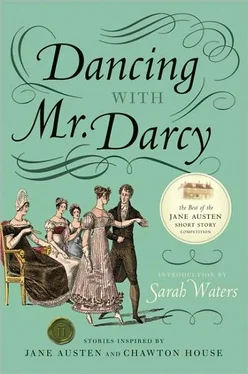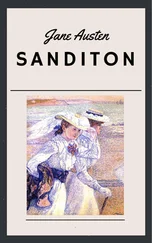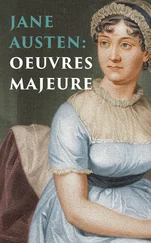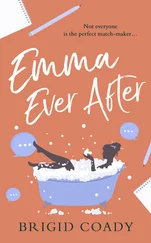It was in the last few minutes before dawn that Rosamunde’s father had stopped breathing. She waited for the returning spasm but this time it had not come again. Afterwards she sat with him for an hour. There had been more tea and, suddenly, there were biscuits. He was exactly as he had always looked but she would not touch him again, afraid that he had already grown colder and that this would be her last memory of him; afraid that, in her subsequent dreams of him, she would reach out and he would be like stone. Across his cheeks, steel grey tips had begun to appear, ‘You need a shave, Dad,’ she said and walked away.
‘It’s not fair!’ she shouted, as she stood in the car park trying to call a taxi. ‘People don’t die at sixty-four.’ In Rosamunde’s hand her mobile phone began to scream. Automatically she answered it, though she recognised the number.
‘Thank Christ, Ros! Where the hell are you?’
‘Cardiff.’
‘Well get the next pony and trap back here immediately, the Bank’s about to go tits up!’ Her angry boss disconnected. A synthetic bubble of water rose and floated vertically over the screen.
She did not go back to London that day but stayed and registered her father’s death. Kieran Shaw, born Dublin, 1943, died Cardiff, 15 September 2008. She signed it, Rosamunde Shaw, daughter, present at the death. When she returned to work her boss had told her how sorry he was to have disturbed her at such a sad time and then he had sobbed dryly for his annual bonus: ‘I earned that money, I deserve it.’ But they both knew that no one was going to step up to the plate and save this moribund bank.
Now, an empty cardboard box on her desk, Rosamunde tried to sweep away the final meal of bread, brie and apple from the crevices in her computer keyboard and then switched off the television. In the end she left the box, taking only the fountain pen her father had given her on the day her mother went. There were no family photographs anyway, only a novel she had half read and no longer cared for. Tomorrow she would put her London house on the market and, once again, take the train from Paddington back to Cardiff. There she would carry her father’s ashes down to Penarth pier, to the exact splinter of wood where, twenty-one years before, on the very day she had left school, she had stood in her summer gingham dress and blazer and thrown her straw hat into the sea. She had watched as it nudged and shrugged across the gentle undulations until she grew tired of waiting for it to drown. It would be different this time. She knew that what was left of her father, sealed in his expensive urn, would not float but be gulped up and sink to the bottom of the bay. Then she would move into his flat, book a ticket to Sicily and, she promised herself, however demanding the climb, she would find the tenacity to make the four-day trek up the volatile slopes of Mount Etna.
Rosamunde and the month of October had settled into her father’s flat when, sitting in a café opposite the travel agent’s, comparing prices in holiday brochures for Italy, she looked up to see Guto’s mother crossing the floor.
‘I read about your father in the local paper. I am so sorry.’
‘Thank you,’ she replied.
‘Would you mind if I told Guto?’ his mother asked.
‘Of course not. How is he?’
He had done well, rising to a senior rank among the civil servants at the Welsh Assembly Government. A respected and trusted translator, he had worked at the UN as well as in Cardiff and London. ‘In London?’ Rosamunde interrupted.
‘He often asks after you,’ Guto’s mother buttoned her coat to leave and then, as if changing her mind, she leant forward over the plastic table. ‘I know he was only a boy but he nearly broke his young heart over you.’
A postcard dropped onto her father’s doormat the following morning. The photograph was of a sandy sweep of bay and the Irish Sea stretching flat out to Cardigan Island. On the back he had written:
Dearest Rosa – Mum has just rung to tell me about your dad. I am so sorry and hope you know that I am thinking of you at this miserable time. Over is the view from my garden. After my divorce came through I decided to buy some land out here. I am now working for the Welsh Pony and Cob Society and am hoping to do some breeding myself in the next year or so. Come anytime – we could walk and ride or just sit by the sea and drink some red wine. My love, as always, Guto.
My inspiration: The inspiration for my story comes from the themes and characters in Persuasion. Beginning with the single image of Louisa Musgrove’s jump from the Cobb at Lyme Regis, I attempted a contemporary retelling of Anne Elliot and Captain Wentworth’s experience of separation, maturation and second chance.
The School Trip
Jacqui Hazell
Stop. I have to stop.
Wheezing like an idiot.
Where’s my inhaler?
My bag’s stuffed: packed lunch, Diet Coke, project folder, mobile, Tampax, I can’t find it. Why can I never find it? They should make them fluorescent.
‘Sorry,’ I’m in the way – doorway to Victory News – better move. Oh, it’s the Jolly Jack Tar – violent dump – thank God it’s shut.
That’s it, there it is.
Okay, breathe out loads. Now puff, and puff again.
Embarrassing and never works fast enough.
Wish I could wait a while, but I have to run, Mr Sole will be doing his nut.
Breathe slowly, or should that be deeply? Be calm. It’s stress-related, according to Mum. She should know seeing as she causes it all.
Okay, Johnsons Shoes, Mothercare, Debenhams, the concrete fountain, Top Shop – wish I could look but I can’t – oh, slow down.
Bag strap is killing me. Nelson’s café and the pound shop – can’t see that nice bloke, must be his day off.
Wait, catch breath, I need to cross.
There’s the coach by the main gate.
It’s the usual English mustard turd of a bus, it matches the school. If you did one of those quizzes like you get in Minx Magazine, you know where you have to match the celebrity to the dog: Paris Hilton and her chihuahua, Sharon Osborne and her pug and Lily Allen and her English bull terrier. Well, the school equivalent would be Portsmouth High for Girls teamed with a gleaming, silver coach with onboard toilet facilities, seatbelts and headrests with inbuilt DVD players and this turd-mobile teamed with my school, Portsmouth City Comp. The dumping ground for hopeless cases and kids whose parents never bothered to fight tooth and nail to get them in anywhere decent.
It’s an eight-storey, 70s block with a few other flat-roofed buildings branching off at right angles, an eyesore, and to make it worse they’ve painted all the window frames a dark, dismal seaweed green like the crappy uniform. It’s listed of course, but that’s Portsmouth for you, so bombed out during the war, they struggle to find anything worth listing.
I can see Mr Sole beside the bus in his stripy knitwear and slacks.
‘Imperative, Lucy Welch, what does imperative mean?’ He’s shouting at me, going on about the last thing he said the day before. ‘It’s imperative you all get to school on time tomorrow.’
‘I’m sorry, sir, I’m having the worst day.’ Did he hear me wheeze? I’m trying to hide it, but I’m really hot and probably red, not to mention sweaty.
‘You can tell me all about it in detention tomorrow, Lucy.’
Mathew Relf is at the front. He’s holding up his fingers in an ‘L’ shape by his forehead. ‘Loser,’ he says, and Eric Boulter sniggers.
The words ‘Shut it, volcano face’ are on the tip of my tongue when I notice his mum seated opposite, talking to Kelvin’s mum. Both women glance over.
Читать дальше












